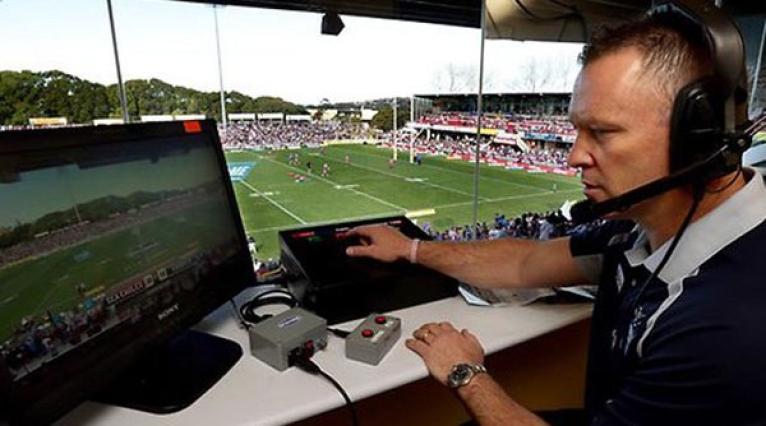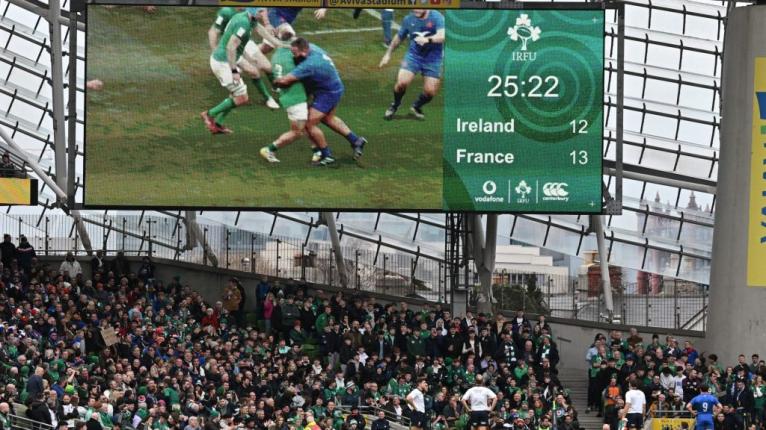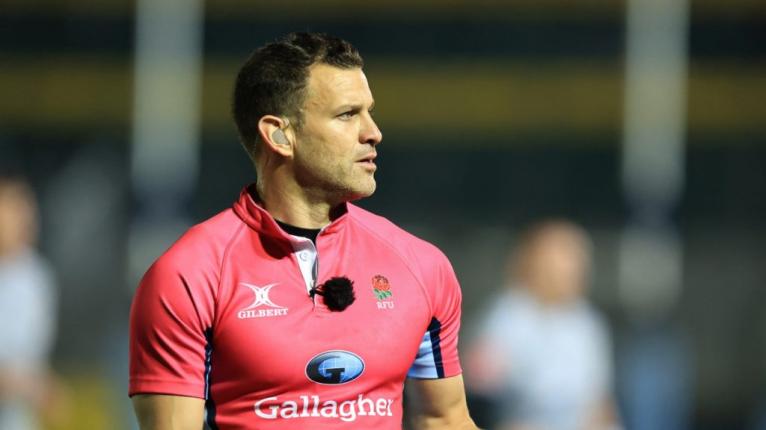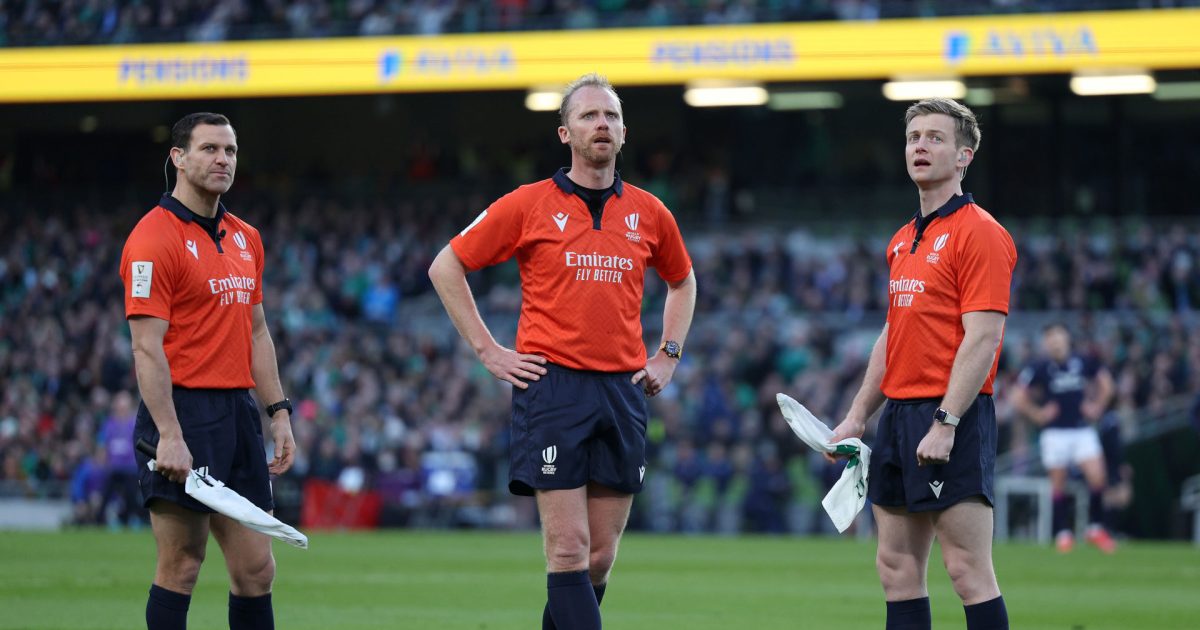TMO bunker could be just what rugby needs - Andy Goode

World Rugby’s latest idea to introduce a ‘TMO bunker’ might be just what rugby needs but for different reasons to the ones people would anticipate.
The proposal would involve a panel of two or more television match officials ruling on controversial or borderline decisions from a remote location, rather than the current system of one person doing so from a TV truck in the stadium car park.
It sounds very similar to the setup used in football, with VAR being operated out of Stockley Park, and we all know that is going down like a lead balloon at the moment but it could be just what the doctor ordered for rugby.
The fact that they would be remote rather than at the ground is neither here nor there as a lot of the production of games on BT Sport, for example, nowadays isn’t on site and there might be a funny joke in this about how many TMOs it takes to change a light bulb but I don’t think more voices and opinions would be a bad thing.

We see it in NFL where they have a centralised instant replay command centre in New York and I don’t see any reason why a similar facility shouldn’t work well in rugby.
Of course, one of the main complaints non-American football fans have about the sport is that it’s too stop start but it is one of the most watched sports out there, both in stadiums and on television, and we’re always hearing how rugby needs to embrace the spectacle around the sport like NFL does.
I think we’ve got to decide whether we want rugby to be a sport where everything happens at breakneck speed and we’re prepared to accept that a fair few mistakes will be made or if we want to slow the decision-making process down for major calls and get more right.
At the moment there is still a frustration with the amount of time it takes officials to make some decisions, often ones which don’t have a huge bearing on the game, but it’s clear that some referees and TMOs feel rushed into making some really big decisions.
The Freddie Steward red card last month is the most high-profile example being cited in all these conversations around how the TMO process can be improved but then there is the Zach Mercer sending off last week and also the Uini Atonio high tackle on Rob Herring in the Six Nations when Wayne Barnes definitely seemed to rush to a conclusion.

In any walk of life if you’ve got less time to make decisions, you’re probably going to get more wrong and then there is the fact that the current system doesn’t allow for much empathy because referees are told to box things off one by one.
For me, having two or three TMOs discussing the incident in a remote location and taking the pressure off the referee and the decision out of their hands would be a positive step and we should be prepared to wait a bit longer for them to reach a verdict if necessary.
Another positive by-product of it being done that way would be that we wouldn’t have to show controversial incidents on the big screen and have officials being put under extra pressure by the reaction of fans inside the stadium.
The sport constantly needs to evolve and we’re seeing that at the moment with the trial in Super Rugby where yellow cards can be upgraded to reds and there was an incident this weekend where Angus Blyth was yellow-carded by referee Ben O’Keeffe and it was absolutely correctly upgraded to a red. The right decision was reached and I like it.
So, I’m in favour of a ‘TMO bunker’ if it’s implemented correctly but I think the bigger issue is that the role of the TMO needs to be treated more professionally. That involves better training, better remuneration and a clear career path and World Rugby needs to take matters into their own hands on this one.
Nowadays, we see the odd current referee on TMO duties from time to time and a mixture of older, retired referees and other people from various different backgrounds performing the role and some simply aren’t up to the job.
If all TMO duties were carried out from a remote location, we would save money on travel and accommodation costs and there could be a stable of the best officials who could work on multiple games over the course of a weekend and concentrate on being a TMO.
It’s such an important job and it should be even more of a specialist role than it is now. If you had a panel of three TMOs working on a game, you could then eventually aim to have maybe one former referee and one former player among them.

In order for that to happen you’d have to get the remuneration right and treat the position with a bit more respect because, even though you do see the odd former player involved in the judiciary process and the likes of Karl Dickson and Nic Berry are refereeing, there isn’t exactly a raft of ex-pros queuing up to officiate in one capacity or another.
I genuinely think there would be quite a lot of former players who would be interested in doing the job of a TMO though if the terms and conditions were right and then we’d get the natural benefit of a bit more empathy in the decision-making process.
There’s quite an old school mindset and attitude towards refereeing still and if you want to get more people taking it up, as well as ensuring they’re treated correctly, you need to invest in it and make sure there’s a clear career path and it’s financially viable.
Referees and TMOs do a vital job and are a massive part of the game and there are plenty of areas where World Rugby oversee everything so it’s about time they created a structure where all officiating and the judiciary process is centralised.
In terms of the ‘TMO bunker’ proposal, it might not sound like it’s something that’s going to happen imminently but there isn’t really anything, whether it be technologically or logistically, stopping it from happening tomorrow.
If you’re going to do it, you’ve got to start sometime and I can definitely see the merits in bringing it in and getting it right in time for the biggest spectacle in the sport later this year.
Some massive calls will have to be made at the World Cup and I’d rather we slowed things down, took the heat out of the situation and called on a panel of well-trained, professional officials in a remote location in order to get as close to 100 per cent of them as possible right.


































Down in Australia we have to complete with league a much faster game and has a big fan base due to the fact the game is faster with less stopages rules and TMO time wasting...now they want to slow our game of rugby down with longer TMO rubbish I fear the death of rugby down under if this ridiculous time wasting is allowed.
Rugby is played with fairness in mind at all times. The tmo is a referees backup to his decisions. It is the answer to the question the referee asks of the tmo allows him to make the right decision. The referee usually asks if there is any reason why his decision is not valid. That is the only influence the tmo has. To verify, or give reason why not to verify, the referee's decision.
An on-ground official tmo would be my preferred option perticularly if he he's a view of all the previous play. But like I said he is in essence only a refer to back up for the referee's decisions. Unlike VAR which takes the decision making process from the referee.
On foul play what rugby needs is a per-player rating, analogous to a credit rating. After each top tier game each players behavior is reviewed and their foul play rating goes up or down. Only players with good foul play ratings get to be picked for top tier games. Players with bad ratings get red carded on first offense. And so on. It will impact pay deals, and clean up the game.
The problem with all of the current protocols is that it's a what-you-can-get-away with model. In a foul-play rating approach you get away with nothing, or very little. It all gets thoroughly reviewed and sanctions applied. The incentive is to play clean at all times.
Bunker idea can help, but I would ramp the numbers a lot. You want someone watching for offside, someone watching for forward passes, someone watching for off the ball obstruction, someone on tackle->jackle->ruck transitions, someone on scrum offences, etc. The NFL model works because they assign the resources to enforce zero-tolerance. Decisions get made quickly because they have "single threaded" people concentrating on specific things. And they apply aggressive sanctions to players, including big fines.
Play chess it would be easier for ye